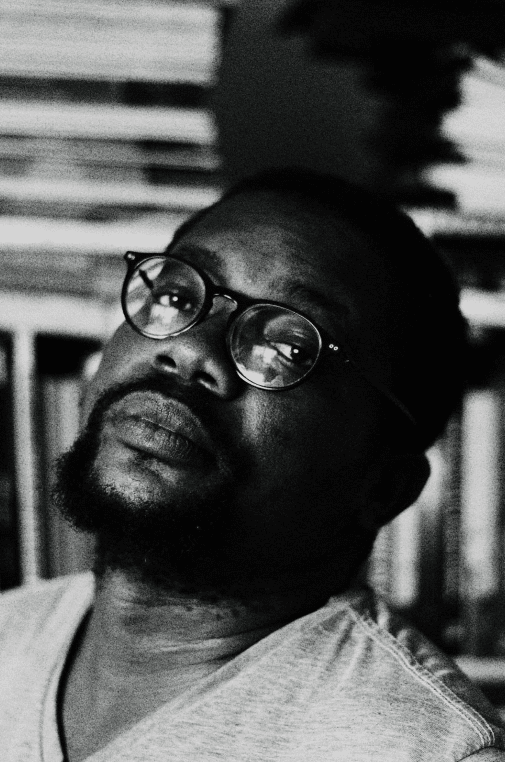African Time Music
“African Time therefore speaks to this temporality of freedom based on this colourful negotiation between the present and past, in an attempt to create a different order. ”
Athi Mongezeleli Joja has been one of the prominent voices of the new generation of art writers emerging in post-apartheid South Africa. He has an MFA from Wits University in Johannesburg, where he studied the writing of the late South African art critic Colin Richards. He has written for magazines and journals including Africanah, Artforum, Contemporary& and the Mail & Guardian. As a member of the arts collective Gugulective, Joja has also taken part in events such as the Creative Time Summit. He was the Andrew W. Mellon fellow at Northwestern University in 2018, where he collaborated with the art historian and critic Huey Copeland on a project to devise undergraduate and graduate courses – called ‘Appropriation and its Discontents’.
African Time [music] is an interesting couplet that necessitates a rethinking of notions and paradigms of time we have inherited from the colonial encounter. Such paradigms have imposed upon the conquered and enslaved people of Africa a temporality that has first excluded them from civilisational history, and then by extension, excluded their contributions in the making of world histories.
Thus, Africa comes into world history and its forms of knowledge as a pariah whose people are both stuck in the past and are also a people without a past. The pure invention of the European self-image under the auspices of slavery and colonisation were predicated on this disruptive and degrading political system.
For Africans however, Africa wasn’t this bedrock of ahistoricity. The term African consequently was adopted (from its negative meaning) as a political and philosophical attitude that called into question the reigning paradigms of domination that had fragmented and destabalized the African continent and its people.
In addition to this existential reality, it was also a unifying term that relied on the pluriversal cultural threads and similarities amongst people of African descent. Though no longer simply answering to the calls of the tribe, Africanity was an ethical and cultural identity that relied on tapping into the resources provided by these common traditional bases. It is this combination or negotiation between the new and old modes of self-understanding, with the explicit interest to liberate themselves from the chokehold of European colonisation.
African Time therefore speaks to this temporality of freedom based on this colourful negotiation between the present and past, in an attempt to create a different order.
Through the capitalist clock of linear and biased progress, African Time means being behind schedule, static, and unpunctual. By this very definition, African Time is diminished, automatically exiled out of history and its people consequently regarded as being without progress. But being diminished is dissimilar to being destroyed, perhaps just as being captivated by one’s heritage does not imply being fixed statically to the past. In a sense, African Time is not the time of the conqueror, of exploitative wage labour, of colonisation, or even simply the time of the wrist-watch to which were have been reduced to by the western imperialism.
As such, Herbie Tsoaeli’s band and by extension, his approach, are therefore an expression of a simultaneously modern and ancient confluence in music that is ethically and culturally bound to the historical mission of ushering in a different time and sensibility; ultimately a differently set of value systems, in and through music.
As Steve Biko once wrote, in African culture music features in all emotional states. By that he meant music is not just a repository for our stories but is also the divinational medium through which they are told and remembered.
Contrary to the contemporary injunctions that have reduced our cultural expressions to mere decorative instruments of mere submission and pleasure, African Time also elaborates the need for social responsibility and moral rectitude. It heightens our senses by the very way it occupies multiple temporal registers in time and space. So, in the face of public pressure to hastily move on to the next item on the agenda, to forget, African Time asks us to pause and reflect. To reassess. To remember! African Time inhabits the present, haunts it, as a maligned conscience.
